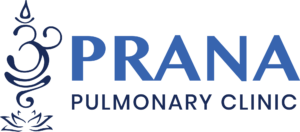8 Tips for a Smooth Recovery After Thoracentesis

Thoracentesis is a medical procedure that involves removing fluid from the pleural space around the lungs. It can provide relief from symptoms like shortness of breath and chest discomfort. While this procedure is generally safe, proper recovery is essential for minimizing complications and ensuring your overall well-being. Here are eight expert tips for a smooth recovery after thoracentesis.
1. Rest and Relaxation
Resting is one of the most important aspects of recovery after thoracentesis. The body needs time to heal, and you may feel fatigued following the procedure. It’s advisable to take it easy for at least 24 hours post-procedure. Limit physical activities, especially those that require lifting or straining. Listen to your body—if you feel tired, allow yourself the time to rest. Creating a calm and quiet environment can aid in your recovery, promoting both physical and mental healing.
2. Monitor Your Symptoms
After thoracentesis, it is crucial to keep an eye on your symptoms. Pay attention to any changes in your breathing, chest pain, or discomfort. If you experience sudden shortness of breath, fever, or excessive pain, seek medical attention immediately. Keeping a journal of your symptoms can help track any changes and provide valuable information to your healthcare provider. Remember, while some discomfort is normal, significant changes warrant a call to your doctor.
3. Follow Medication Guidelines
Your healthcare provider may prescribe medications to manage pain or prevent infection after the procedure. It is important to take these medications as directed. Over-the-counter pain relievers like acetaminophen or ibuprofen can be effective for managing mild discomfort, but always consult your doctor before taking any new medications. If you experience side effects from prescribed medications, inform your healthcare provider for potential adjustments.
4. Hydration is Key
Staying hydrated is vital for recovery after thoracentesis. Fluid removal can temporarily change your body’s fluid balance, and adequate hydration helps restore normalcy. Drinking enough water can also support overall recovery by flushing out toxins and aiding in healing. Aim for at least 8-10 glasses of water daily, unless otherwise instructed by your healthcare provider. However, avoid excessive caffeine or alcohol, as these can dehydrate you.
5. Follow Up with Your Doctor
Scheduling a follow-up appointment is critical for monitoring your recovery and ensuring the fluid removal was successful. Your doctor will assess your progress, check for any complications, and may recommend additional treatments if necessary. Regular follow-ups help identify any issues early, improving your overall recovery experience. Make sure to communicate any concerns or new symptoms during these visits.
6. Gradually Resume Activities
While rest is essential, it is also important to gradually resume your normal activities. After the initial recovery period, start with light activities and slowly increase your physical exertion as tolerated. Avoid heavy lifting, strenuous exercise, or any activity that may strain your chest for at least a few days. A gradual return to your daily routine can help your body adjust while promoting healing. Listen to your body and permit yourself to rest when needed.
7. Practice Deep Breathing Exercises
Deep breathing exercises are beneficial for lung recovery after thoracentesis. These exercises help expand the lungs, improve oxygenation, and reduce the risk of complications such as pneumonia. Start with simple techniques: sit comfortably, take a deep breath through your nose, hold for a few seconds, and exhale slowly through your mouth. Aim to practice these exercises several times a day, especially in the days following the procedure. Over time, these exercises can enhance your lung capacity and promote better overall respiratory health.
8. Create a Supportive Environment
Having a supportive environment can significantly enhance your recovery experience. Whether it’s family, friends, or caregivers, surrounding yourself with people who understand your needs can alleviate stress and anxiety. They can help you with daily tasks, encourage you, and ensure you adhere to your recovery plan. Additionally, consider having a designated recovery area in your home where you feel comfortable and can rest without distractions.
Recovering from thoracentesis is a process that requires patience and care. By following these expert tips, you can promote a smoother recovery and minimize the risk of complications. Always prioritize your well-being and maintain open communication with your healthcare providers. If you have questions or need guidance regarding your recovery, reach out to Prana Pulmonary Clinic for expert support and care tailored to your needs. Your health is a priority, and proper recovery after thoracentesis is essential for achieving your best health outcomes.










